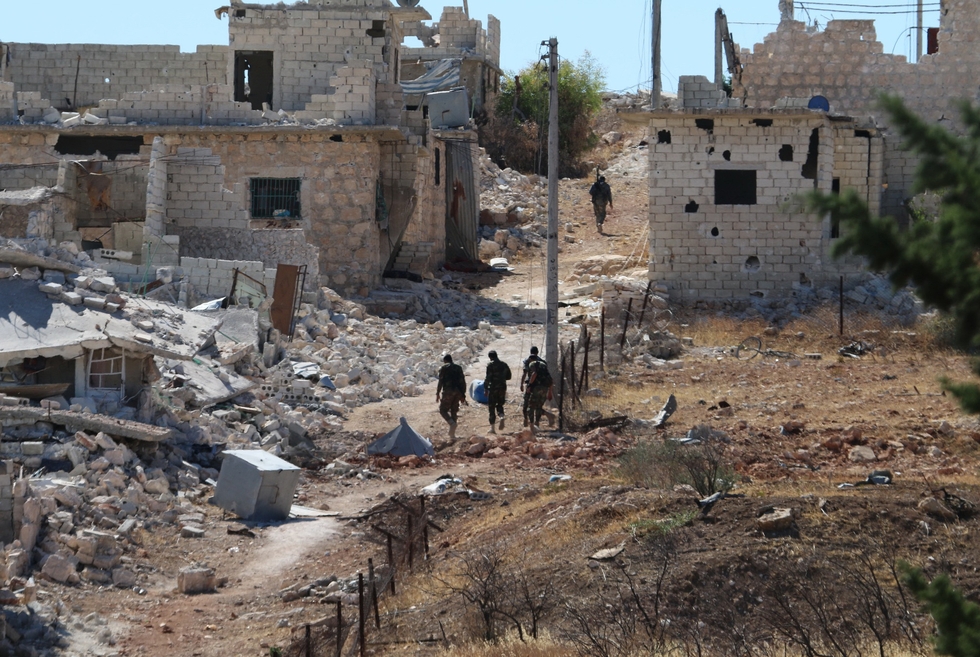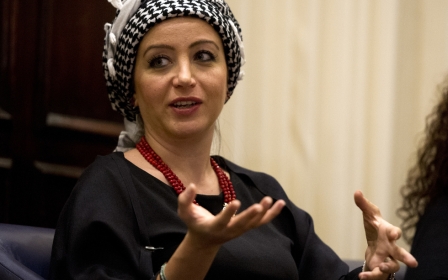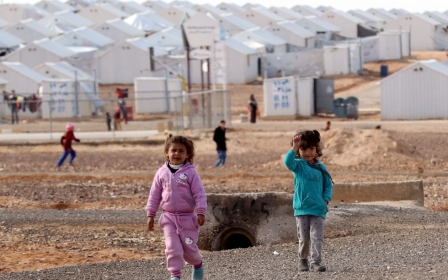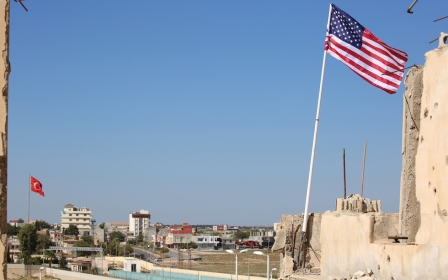Russia lashed at UN for 'war crimes' as Aleppo onslaught rages

Syrian and Russian warplanes pounded rebel-held east Aleppo on Sunday ahead of a UN Security Council meeting in which they were accused of "barbarism".
Overnight, residents and a monitor reported heavy air raids on the besieged east of the city, which Syria's army has pledged to retake.
Britain, France and the US lashed out at Russia on Sunday over the worsening carnage.
US Ambassador Samantha Power accused Russia of "barbarism" during the Security Council emergency meeting called to demand that Moscow rein in its ally, Syrian President Bashar al-Assad, and halt the intense air strikes.
"Instead of pursuing peace, Russia and Assad make war," Power said. "What Russia is sponsoring and doing is not counter-terrorism. It is barbarism."
Washington and its European allies earlier said the burden was on Syrian government ally Russia to save a truce that fell apart in the past week.
At least 101 people, mostly civilians, have been killed in Syrian and Russian bombardment of eastern Aleppo since the army announced an operation to take it Thursday, the Syrian Observatory for Human Rights said.
The monitor said at least 17 children were among those killed in the assault, which has included missile strikes, barrel bomb attacks and artillery fire.
On Saturday night, residents said cluster bombs rained down on eastern parts of the city, where an estimated 250,000 people are living under a government siege.
"All night long they were dropping cluster bombs. I couldn't sleep until four in the morning," said 62-year-old Ahmed Hajar, who was out looking for bread in al-Kalasseh neighbourhood.
"Today the streets of my neighbourhood are full of unexploded cluster bombs. One person was killed when he disturbed one and it exploded," he said.
"It tore him apart... it was an awful scene."
Syrian government advances
The Syrian army and allied militia seized ground north of Aleppo on Saturday, tightening a siege of the city's rebel-held east as it suffered intense aerial bombardment in a major Russian-backed offensive that EU officials said "breached international law," sparking an urgent call for a meeting of the UN Security Council.
The capture of the Handarat camp a few kilometres north of Aleppo marked the first major ground advance of the offensive, which the government announced on Thursday.
The head of the rebel negotiating bloc, Riyadh Hijab, accused Russia of a "genocide" in and around Aleppo, where Al Jazeera said at least 70 people were killed in bombardment on Saturday.
The attacks on civilians amount to a breach of international humanitarian law, top EU officials said on Saturday, urging the international community to intensify peace efforts.
"The indiscriminate suffering being caused among innocent civilians... is an unacceptable breach of international humanitarian law," EU foreign policy chief Federica Mogherini and humanitarian commissioner Christos Stylianides said in a statement.
Saturday's capture of the Handarat was a major breakthrough for Syrian President Bashar al-Assad's forces. The camp for Palestinian refugees lies on elevated ground overlooking one of the main roads into Aleppo and had been in rebel hands for years.
"Handarat has fallen," an official with one of the main Aleppo rebel groups told Reuters. An army statement confirming the advance said "large numbers of terrorists" had been killed.
The collapse of peacemaking and Assad's decision to launch an all-out assault on the last big urban area still in rebel hands appear to mark a turning point in a conflict that was stalemated for years. Assad and his allies seem more determined than ever to crush the nearly six-year-old rebellion by force.
Residents say air strikes on eastern Aleppo have been more intense than ever, using more powerful bombs. Rebel officials said heavy air strikes on Saturday hit at least four areas of the opposition-held east, and they believe the strikes are mostly being carried out by Russian warplanes. Video of the blast sites show craters several metres wide and deep.
Ban said on Saturday he was "appalled by the chilling military escalation" in Aleppo, and Britain, France and the United States requested an emergency meeting of the UN Security Council.
The meeting is scheduled for 1500 GMT, but it was unclear what results it could produce, with Moscow and Washington trading accusations over who is to blame for the ceasefire's failure.
The United States and its European allies said on Saturday it was up to Moscow to save the truce.
"The burden is on Russia to prove it is willing and able to take extraordinary steps to salvage diplomatic efforts," read a joint statement from Britain, France, Germany, Italy, the United States and European Union.
"Patience with Russia's continued inability or unwillingness to adhere to its commitments is not unlimited," the statement added.
Russia has blamed Washington for the ceasefire's failure, saying the US did not uphold its commitment to ensure that moderate rebels distanced themselves from militant groups such as former al-Qaeda affiliate al-Nusra Front.
Syria's foreign minister meanwhile said Saturday that his government was confident of "victory" with support from "true friends" including Russia, Iran, and Lebanon's Shia militant group Hezbollah.
"Our belief in victory is even greater now that the Syrian Arab army is making great strides in its war against terrorism," he told the UN General Assembly.
Western countries and international aid organisations say they fear for the lives of more than 250,000 civilians believed to be trapped in the rebel-held zone of Aleppo, Syria's biggest city, which for years has been divided into opposition and government sectors. The army says it is targeting only militants.
Dramatic video footage captured by MEE contributor Bilal Abdul Kareem, who is active on the ground in Aleppo, captured an air strike falling just behind a civil defence base in the city on Saturday.
New weapons from allies
Syrian rebels expect to receive new types of heavy weapons from their foreign backers in response to the collapse of a truce and a Russian-backed government offensive, but nothing amounting to a major shift in support, a rebel leader said on Saturday.
Colonel Fares al-Bayoush, head of the Northern Division group, told Reuters he expected rebels to get new types of Russian-made rocket launchers and artillery, but there was no sign of foreign states agreeing to the rebels' long-held demand for anti-aircraft missiles. Any increase would be "slight".
While Bayoush indicated rebel capabilities could be enhanced to a degree, he said a more significant shift would be in their tactics, though he gave no details.
States opposed to Assad, such as Saudi Arabia, Turkey and the United States, have been channelling military support to some rebels fighting under the banner of the Free Syrian Army for several years. In some cases this has included US-made anti-tank, or TOW, missiles.
The rebels have long complained, however, that foreign support has been inadequate to confront Damascus effectively.
Speaking to Reuters from Syria, Bayoush said "there are indications and promises" of more weapons, though he only expected "a slight increase". He expected the delivery of more "heavy weapons, such as rocket launchers and artillery".
"I expect new types of Russian-made weapons, in addition to more of the previously [supplied] types," he added via an internet-based messaging system.
"What is expected is an increase in the pace of the battles, so that they are organised in a different way - a change in tactics," he said.
Additional reporting by Zouhir al-Shimale in Aleppo
New MEE newsletter: Jerusalem Dispatch
Sign up to get the latest insights and analysis on Israel-Palestine, alongside Turkey Unpacked and other MEE newsletters
Middle East Eye delivers independent and unrivalled coverage and analysis of the Middle East, North Africa and beyond. To learn more about republishing this content and the associated fees, please fill out this form. More about MEE can be found here.




